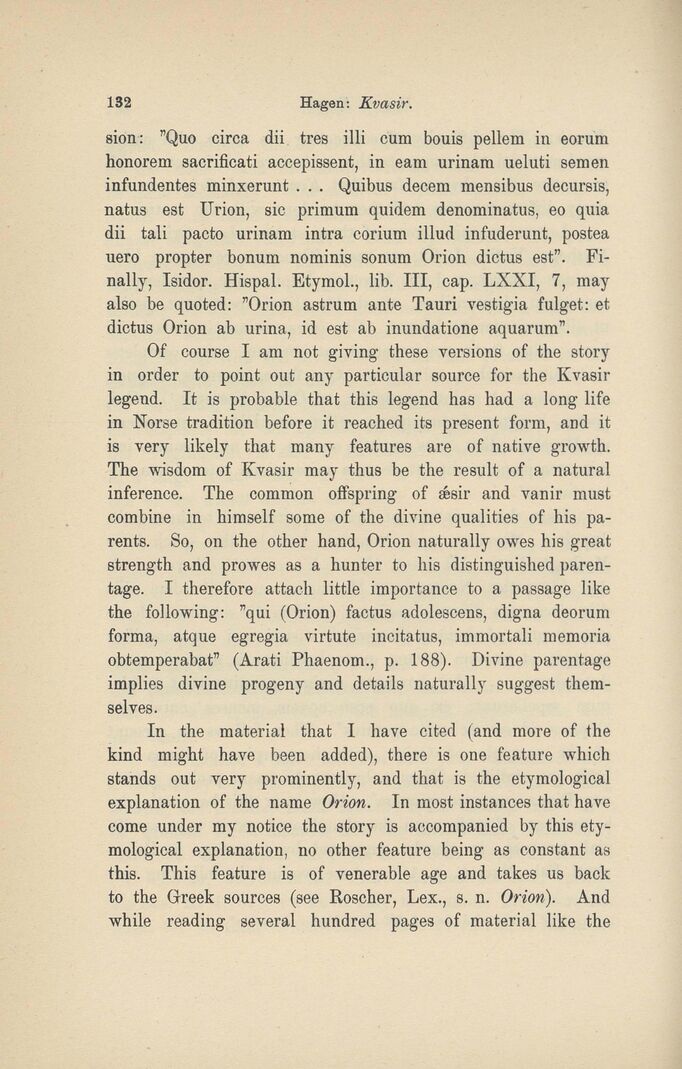
Full resolution (JPEG) - On this page / på denna sida - Sidor ...

<< prev. page << föreg. sida << >> nästa sida >> next page >>
Below is the raw OCR text
from the above scanned image.
Do you see an error? Proofread the page now!
Här nedan syns maskintolkade texten från faksimilbilden ovan.
Ser du något fel? Korrekturläs sidan nu!
This page has never been proofread. / Denna sida har aldrig korrekturlästs.
132 Hagen: Kvasir.
8ion: ”Quo circa dii tres illi cum bouis pellem in eorum
honorem sacrificati accepissent, in earn urinam ueluti semen
infundentes minxerunt . . . Quibus decern mensibus decursis,
natus est Urion, sic primum quidem denominatus, eo quia
dii tali pacto urinam intra corium illud infuderunt, postea
uero propter bonum nominis sonum Orion dictus est”. Fi-
nally, Isidor. Hispal. EtymoL, lib. Ill, cap. LXXI, 7, may
also be quoted: ”Orion astrum ante Tauri vestigia fulget: et
dictus Orion ab urina, id est ab inundatione aquarum”.
Of course I am not giving these versions of the story
in order to point out any particular source for the Kvasir
legend. It is probable that this legend has had a long life
in Norse tradition before it reached its present form, and it
is very likely that many features are of native growth.
The wisdom of Kvasir may thus be the result of a natural
inference. The common offspring of æsir and vanir must
combine in himself some of the divine qualities of his pa-
rents. So, on the other hand, Orion naturally owes his great
strength and prowes as a hunter to his distinguished paren-
tage. I therefore attach little importance to a passage like
the following: ”qui (Orion) factus adolescens, digna deorum
forma, atque egregia virtute incitatus, immortali memoria
obtemperabat” (Arati Phaenom., p. 188). Divine parentage
implies divine progeny and details naturally suggest them-
selves.
In the material that I have cited (and more of the
kind might have been added), there is one feature which
stands out very prominently, and that is the etymological
explanation of the name Orion. In most instances that have
come under my notice the story is accompanied by this ety-
mological explanation, no other feature being as constant as
this. This feature is of venerable age and takes us back
to the Greek sources (see Roscher, Lex., s. n. Orion). And
while reading several hundred pages of material like the
<< prev. page << föreg. sida << >> nästa sida >> next page >>